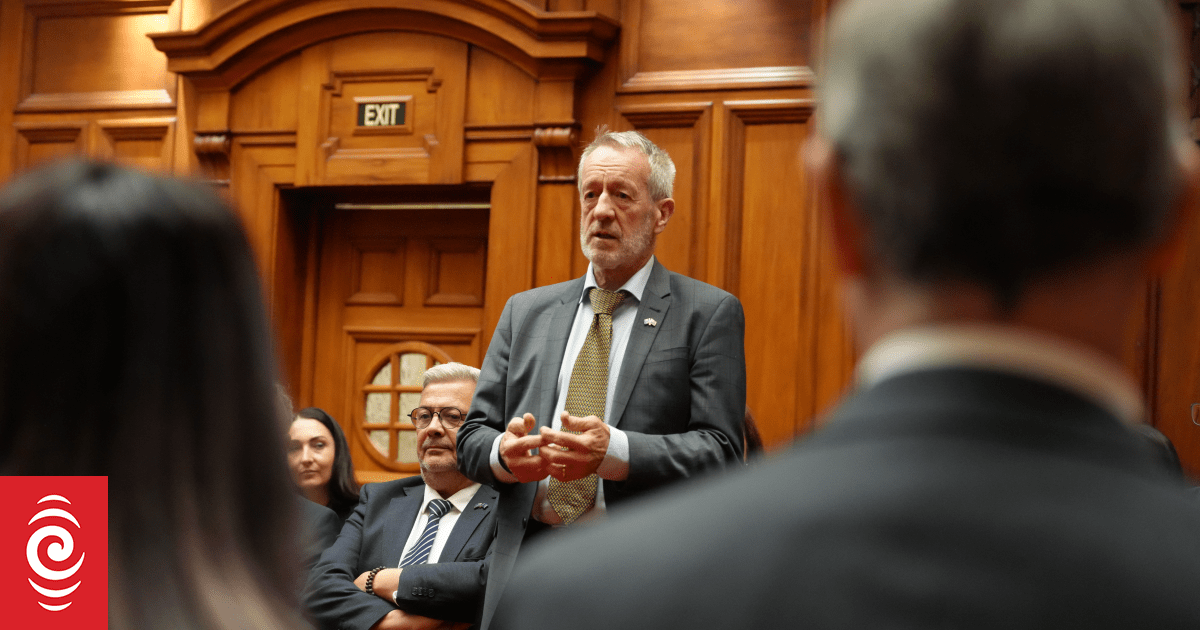Delegation Chair Seán Kelly represents the Ireland South constituency at the European Parliament.
Photo: VNP/Louis Collins
New Zealand is a crucial partner despite being on the opposite side of the globe, a visiting Member of the European Parliament said while in New Zealand this week.
Six members of the multinational legislature, which has recently signed a Free Trade Agreement with New Zealand, were in Wellington to strengthen inter-parliamentary ties, and relay information about our society and the economy back to Brussels.
Parliamentary diplomacy, which is distinct from government-led foreign affairs, is something that New Zealand’s Parliament values highly. Connecting with counterparts through both inward and outward engagements gives MPs a platform to foster bilateral and multilateral relationships and exchange knowledge.
Delegation chair Seán Kelly represents the Ireland South constituency. He says the European Union is keen to grow its relationship with New Zealand, which is culturally connected despite the distance.
“New Zealand is the furthest away from Europe, but at the same time, in all other respects, it’s very close to Europe, both in terms of language, in attitude, in democracy, culture, and even listening to the parliament there today, it was very similar to the Parliaments across the European Union.”
Fostering these relationships with like-minded nation states is even more crucial these days, Kelly said.
“There are a lot of challenges globally, and working together with like-minded partners in particular is hugely important now for Europe, especially because of what has happened geopolitically in the world in the last number of years.”
A mongrel parliament
Coming from New Zealand, with our comparatively small, Westminster-derived legislature, the European Union seems like a bit of a distant and unusual entity – akin to a scenario in which New Zealand, Australia and Pacific Island Nations sharing a common currency, lawmaking body and soft borders.
European Commission President Ursula Von der Leyen gives a press conference on the 18th package of sanctions against Russia at the EU headquarters in Brussels.
Photo: AFP /NICOLAS TUCAT
Kelly gave The House a brief rundown of how the EU Parliament works, noting its trajectory from being branded as a “Mickey Mouse Parliament” to now being a highly respected lawmaking body.
“Over time, the European Parliament evolved from having almost no powers to becoming a true co-legislator,” Kelly said.
“[Nowadays] some would say that we have too much power, because if you look at what’s happening in national parliaments, it’s estimated that around 60 percent of the legislation that’s going through national parliaments is now actually transposing what has been decided or voted on in the European Parliament.”
“Now, that’s in the sense that every single country, the 27 members of the European Union, have representation in the Parliament, and the smallest countries like Malta and Luxembourg, they are guaranteed a minimum of six [seats], the biggest country, Germany has 96. So it’s very democratic – there is no government there, so everything is done by majority.”
Irish connection
New Zealand and Ireland are two countries that are often compared due to their similar populations, and rankings on the human development index. The two societies also have the commonality of pursuing language revitalisation efforts – Irish (Gaelic) in Ireland, and Te Reo Māori in New Zealand.
Kelly, a keen proponent of the Irish language says the European Parliament’s mantra of “unity in diversity” has been conducive to the legitimisation of indigenous languages being used in administrative and legislative contexts.
“So I speak Gaelic, I can speak it in the European parliament – you often do – and that’s then interpreted into all the other languages. [It’s] the same here. You’re preserving your languages [in Parliament] here, which is very important for the Maōri.
“We have 200 plus Irish people employed in Brussels, either as interpreters or translating documents. Every single document is translated into the 23 official languages, and, Irish, became a working document language just two years ago, and I put down the first ever amendment to a resolution in our native language. So there’s a lot of support there for it and [it’s] something we appreciate.”
You can listen to the audio version of this story, along with other coverage from Parliament this week by clicking the link at the top of the page.
*RNZ’s The House, with insights into Parliament, legislation and issues, is made with funding from Parliament’s Office of the Clerk.
Sign up for Ngā Pitopito Kōrero, a daily newsletter curated by our editors and delivered straight to your inbox every weekday.
